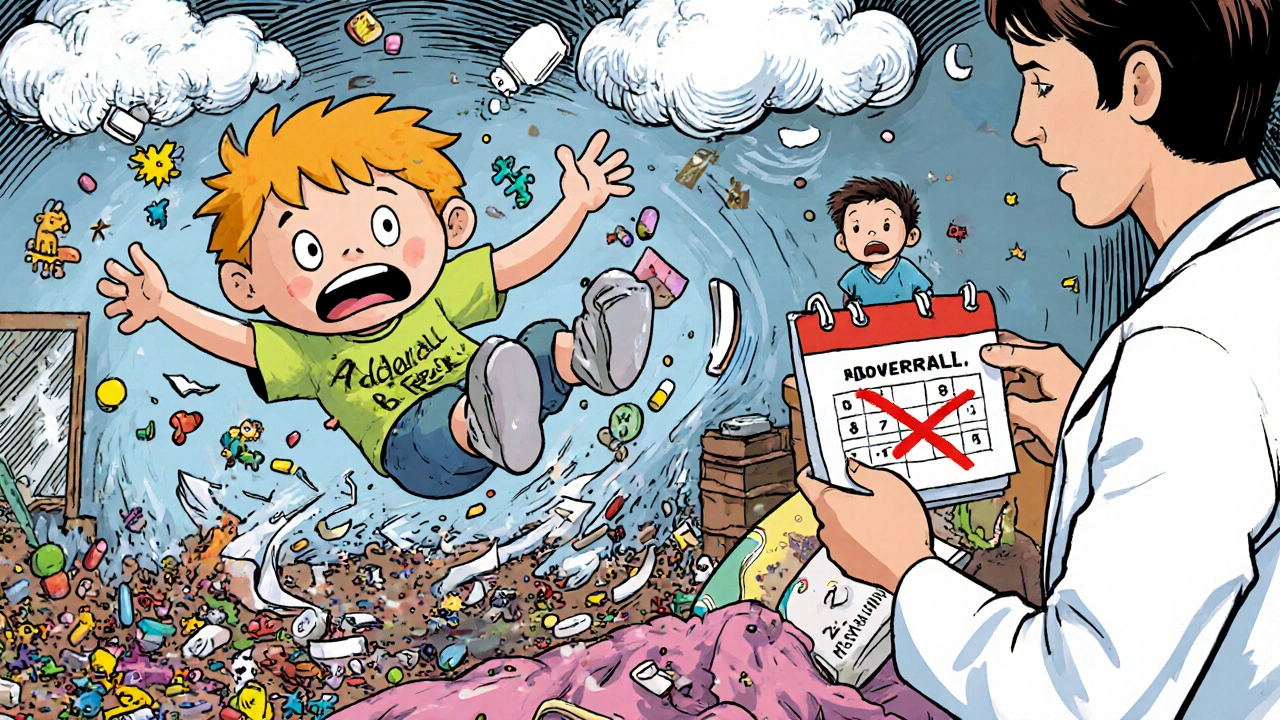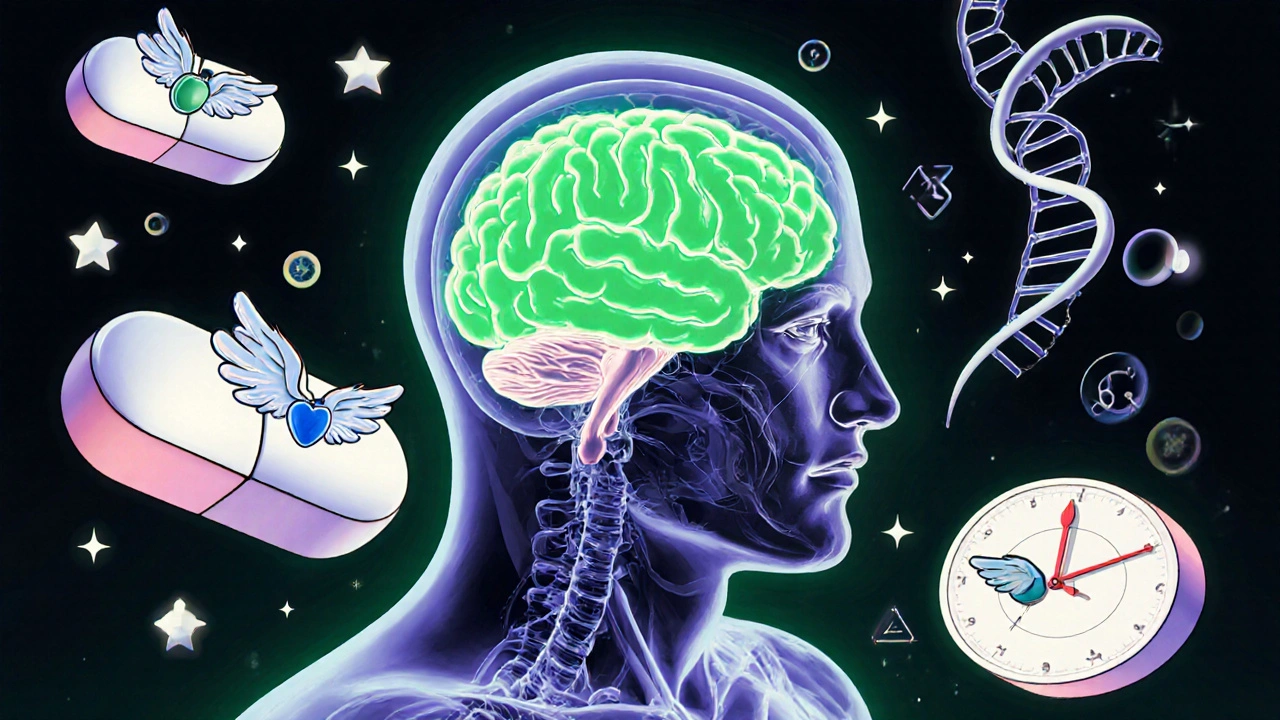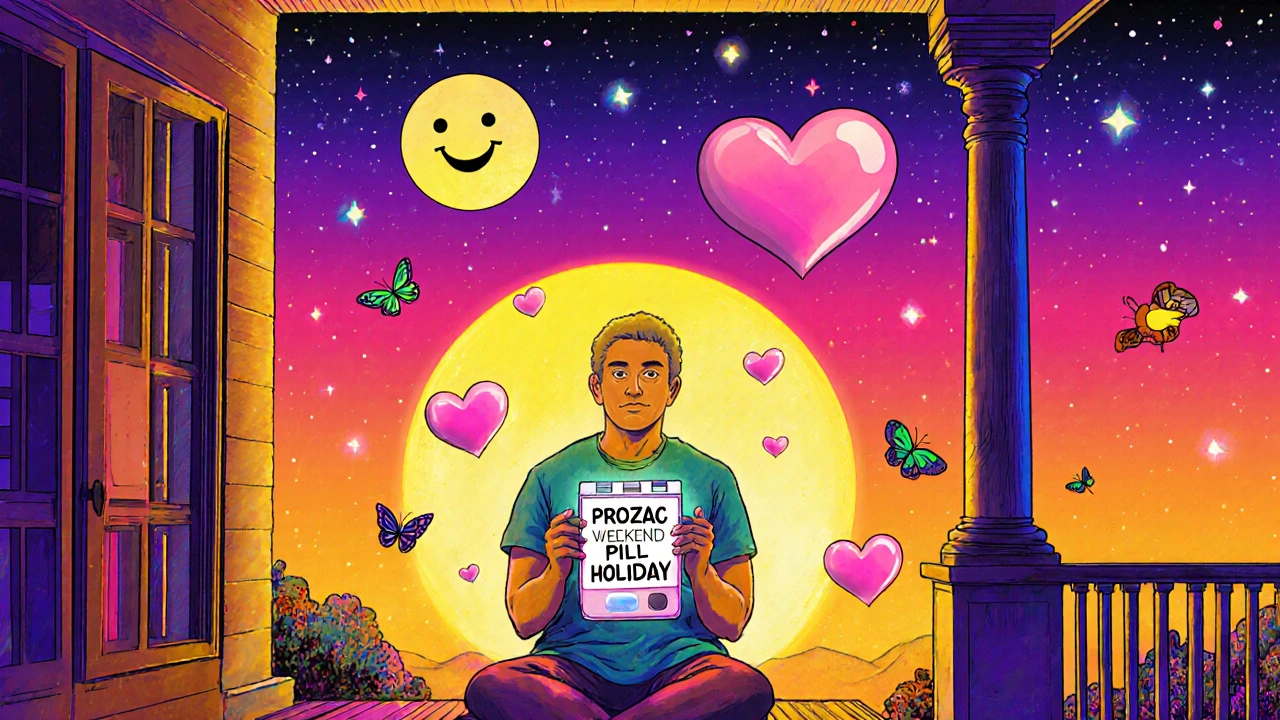21 Nov 2025
- 11 Comments
Drug Holiday Safety Calculator
This tool helps determine if a planned medication break might be safe for your specific situation. Remember: Never stop medication without consulting your doctor.
Stopping your medication-even for a few days-sounds risky. And it is, if you do it on your own. But what if you could take a planned, supervised break from your drug to ease side effects, regain your sex life, or give your body a reset? That’s what a drug holiday is: a temporary, doctor-approved pause in your treatment. It’s not quitting. It’s not skipping pills because you’re tired. It’s a strategy. And for some people, it works.
What Exactly Is a Drug Holiday?
A drug holiday isn’t a buzzword. It’s a clinical term. It means stopping a prescribed medication for a set amount of time-days, weeks, or sometimes months-under medical supervision. The goal? To reduce side effects, test if you still need the drug, or improve quality of life. This isn’t new. Doctors started using it in the 1990s with HIV drugs, hoping the immune system would rebound. But the 2006 SMART trial, which tracked over 5,000 patients, proved that for HIV, skipping meds led to more infections and heart problems. So today, drug holidays are off the table for HIV. But for other conditions? They’re still in play.Where Drug Holidays Actually Work
Not all medications are the same. Some can handle a break. Others can’t. The key is how the drug behaves in your body-especially its half-life, or how long it sticks around.For example, fluoxetine (Prozac) has a half-life of 4 to 6 days. That means even if you skip a few days, there’s still enough in your system to avoid nasty withdrawal symptoms. That’s why weekend drug holidays-stopping Friday night, restarting Monday morning-are used by some people on SSRIs to fix sexual side effects. Studies show about 65% of users report improved intimacy without mood crashes. One patient on PatientsLikeMe said, “Two days off Prozac restored intimacy without noticeable mood changes.” That’s the sweet spot: short, planned, and monitored.
ADHD meds like methylphenidate (Ritalin) or Adderall are different. They’re short-acting. Many parents take their kids off these meds during summer break, hoping to avoid appetite loss or growth delays. But here’s the catch: 78% of children show serious behavioral rebound. They become more impulsive, disorganized, or aggressive. One mom told the Child Mind Institute her son ended up in the ER three times over summer because he couldn’t control his impulses. The American Academy of Child and Adolescent Psychiatry says these breaks can increase accident rates by 45%. So while the idea sounds nice, the reality is messy.
When a Drug Holiday Is Dangerous
Some drugs? Never skip them. Not even for a day.Anticonvulsants for epilepsy? Stopping suddenly can trigger seizures. Beta-blockers for heart conditions? Abrupt withdrawal can cause heart attacks or dangerous spikes in blood pressure. Corticosteroids? Your body can go into adrenal crisis if you quit cold turkey. These aren’t risks you gamble with. The NCBI withdrawal guidelines are clear: these medications require gradual tapering, not sudden stops.
Even antidepressants that seem safe can backfire. Dr. David Healy’s 2020 analysis found that 33% of patients with multiple past depressive episodes relapsed within two weeks of stopping their meds. And it’s not just mood. People report “brain zaps”-electric shock sensations in the head-dizziness, nausea, and sleep chaos. Forty-one percent of users on Drugs.com described these symptoms during unplanned breaks. That’s not a minor inconvenience. That’s a medical event.

Who Should Consider a Drug Holiday?
It’s not for everyone. But if you’re stable on your medication for at least six months and are struggling with specific side effects, it might be worth discussing. Here are the best candidates:- People on SSRIs with persistent sexual dysfunction (low libido, delayed orgasm, erectile issues)
- Patients on long-term stimulants with significant appetite suppression or growth delays (in children)
- Those on antidepressants who’ve been symptom-free for over a year and want to test if they still need the drug
But here’s the rule: no one should do this alone. You need a plan. That means tracking your symptoms for 4 to 8 weeks before the break. Writing down exactly what you’re feeling. Setting clear triggers for when to restart the meds-like if your anxiety spikes, your focus vanishes, or you can’t sleep for three nights in a row.
How to Do a Drug Holiday Right
If your doctor agrees, here’s how to do it safely:- Start with stability. You should be on the same dose for at least 6 months with no relapses.
- Choose the right timing. For SSRIs, weekends work. For ADHD meds, maybe a 2-week summer break-not 8 weeks.
- Use pharmacokinetics. Long half-life drugs? Safer for short breaks. Short half-life? Avoid unless you’re tapering.
- Plan the return. Set a hard date to restart. Don’t say “I’ll go back when I feel like it.” That’s how things go off the rails.
- Monitor closely. Keep a daily log. Tell your doctor if you feel worse. Have an emergency contact ready.
Some clinics now use digital tools. Epic and Cerner, the big electronic health record systems, added holiday tracking modules in 2024. You get alerts when it’s time to restart. Your doctor gets a report. It’s not magic-but it’s a lot safer than guessing.

Real Stories, Real Risks
On Reddit, a parent named “ParentOfTwo” wrote: “My 10-year-old’s summer break from Adderall turned into a nightmare. He screamed at his sister, threw his phone out the window, and got kicked out of camp. We had to rush him back on meds-and it was too late.”Another user on PatientsLikeMe, “HealthyMind87,” said: “I’ve been on fluoxetine for three years. My sex life was dead. I tried a weekend holiday. Two days off. Two days back. My libido came back. My depression didn’t. I’ve been doing it every weekend for a year.”
The difference? One was planned. One was chaos.
What’s Changing in 2025
The field is evolving. In 2023, the FDA approved a new extended-release form of bupropion designed with built-in “holiday windows”-a pill that slowly tapers off over 48 hours, making weekend breaks safer. Meanwhile, the NIH is running the SPRINT trial, testing whether genetic testing can predict who’s likely to handle a break well and who’s not. AI tools are being trained to analyze your symptom history and flag when a holiday might be risky.But here’s the bottom line: 61% of emergency visits tied to medication issues involve people stopping drugs without a plan. That’s not a failure of medicine. That’s a failure of communication. Too many patients think “I don’t feel like taking this today” is the same as a drug holiday. It’s not.
Final Advice: Talk to Your Doctor
If you’re tired of side effects, don’t suffer silently. Don’t quit. Don’t skip. Don’t Google it. Go to your doctor. Say: “I’m struggling with [side effect]. Is there a safe way to take a break?”Most psychiatrists support drug holidays for SSRIs and sexual side effects. Only 22% support them for ADHD meds. That’s not because they’re against you. It’s because they’ve seen what happens when it goes wrong.
A drug holiday isn’t about freedom. It’s about control. Control over your body, your symptoms, and your life. But control only works when it’s guided. Don’t take the risk alone. Your doctor isn’t there to say no. They’re there to help you do it right.


Kane Ren
November 22, 2025Been on Prozac for 5 years and did weekend holidays for my sex life-totally changed everything. No mood crashes, just better intimacy. My partner noticed the difference before I even told them. Doctors should talk about this more instead of acting like all meds are set in stone.
Charmaine Barcelon
November 22, 2025You people are insane!! Just take your pills!! How is this even a thing?? You think your body knows better than science??
Karla Morales
November 24, 2025Let’s be real: 65% success rate on SSRIs? That’s not a ‘sweet spot’-that’s a statistical outlier. And the fact that you’re glorifying weekend breaks while ignoring the 35% who crash? That’s irresponsible. 📊📉 Also, ‘brain zaps’ aren’t a meme-they’re neurological chaos. 😵💫
Javier Rain
November 25, 2025Guys, I get it. You’re tired of side effects. But don’t let fear or frustration make you reckless. I was on Adderall for years, took a 2-week summer break with my doc’s OK, and it was fine-because I tracked everything. Mood logs, sleep, focus scores. No guessing. No panic. Just data. If you’re gonna do it, do it right. 💪
Laurie Sala
November 25, 2025But what if you just… don’t want to feel numb anymore? What if the pills are making you feel like a ghost in your own life? I’m not asking for permission-I’m just saying… I’m tired of being medicated into compliance.
Ragini Sharma
November 26, 2025lol so u mean like... u take ur meds on weekdays n chill on weekends? that's wild. i thought u had to take em every day or u die. 🤔
Linda Rosie
November 27, 2025Control, not chaos.
Vivian C Martinez
November 28, 2025If you're considering a drug holiday, start by talking to your prescriber-not Reddit. Document your symptoms for 4 weeks before and after. Track everything. And if you feel worse? Restart immediately. This isn't a lifestyle hack. It's a medical tool. Use it wisely.
Ross Ruprecht
November 29, 2025So… basically, if you’re on Prozac and your sex life sucks, just skip Friday and Monday? That’s it? No wonder medicine is broken.
Bryson Carroll
December 1, 2025People who do drug holidays are just cowards who can't handle their own biology. You think your brain is special? You're not. You're just lazy. The system works. Take your pills or get off the grid.
Jennifer Shannon
December 1, 2025There’s something deeply human about wanting to feel fully alive-even if it means risking a little instability. We’ve been trained to see medication as a permanent fixture, like a tooth filling or a pacemaker. But what if it’s more like a crutch? Something you use until you’re strong enough to walk without it? Or maybe, just sometimes, to dance? I’ve watched friends come back from depression, not because they took the pill every day, but because they dared to ask: ‘What if I didn’t need this?’ And yes, some crashed. But others? They found a rhythm that was theirs. Not the doctor’s. Not the drug’s. Theirs. And isn’t that what health really is? Not just absence of symptoms, but presence of self?